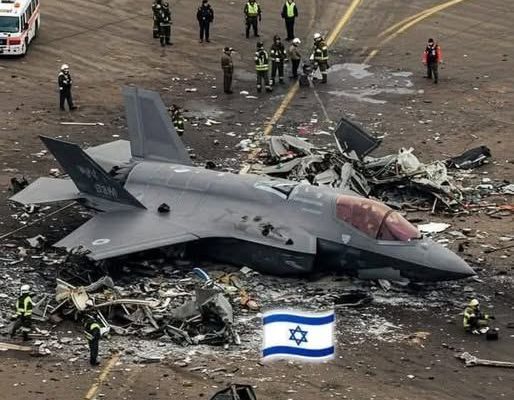- The U.S. hopes Iran will fold after a bunker-busting bombing. But there’s no guarantee.
- Trump’s debate pitted his promise to avoid “endless wars” with the prospect of a legacy-making achivement.
The highest hope of President Donald Trump‘s bombing of Iran: A rogue nuclear program that had defied a half-dozen of his predecessors has finally been destroyed.
The deepest fear: Just four years after the chaotic withdrawal from Afghanistan ended America’s longest war, the United States is now enmeshed in another war in a volatile region, with perilous and uncertain consequences.
“Our objective was the destruction of Iran’s nuclear enrichment capacity and a stop to the nuclear threat posed by the world’s No. 1 state sponsor of terror,” Trump said in a late-night announcement in the East Room on June 21, interrupting Americans’ Saturday night plans with news that B-2 bombers had dropped the world’s most powerful conventional bombs on three sites considered crucial to Tehran’s nuclear program. “Iran, the bully of the Middle East, must now make peace.”
That’s the calculation behind “Operation Midnight Hammer,” anyway − that despite its initial bluster, Tehran will be forced to abandon its nuclear program.
But Trump acknowledged there were other possibilities.
“Remember, there are many targets left,” he said, surrounded by a solemn-looking trio of advisers − Vice President JD Vance, Secretary of State Marco Rubio and Defense Secretary Pete Hegseth. “If peace does not come quickly, we will go after those other targets with precision, speech and skill.”
A war between Trump’s fundamental impulses
The White House debate over whether to launch the bombers put at odds some of Trump’s most fundamental impulses.
One is his fervent opposition in all three of his presidential campaigns against “forever wars,” including the costly and controversial conflicts in Iraq and Afghanistan. His “America First” agenda reflects a determination to focus less on places like Ukraine and more on challenges close to home.
Though most Republican congressional leaders praised the president for the decision, some people prominent in the MAGA movement did not. “This is not our fight,” Georgia Rep. Marjorie Taylor Greene complained on social media. “Every time America is on the verge of greatness, we get involved in another foreign war.”
On the other hand, Trump is also famously impatient with problems that have frustrated standard solutions. Witness, for instance, his willingness to press the limits of the law in identifying and deporting millions of undocumented immigrants.
The lengthy efforts at negotiation with Iran, like much of diplomacy, seemed unlikely to reach the sort of dramatic and decisive conclusion he favors.
The bombing of Iran also reflects his alliance with Israeli Prime Minister Benjamin Netanyahu, who argues that Iran’s nuclear program poses an existential threat to his country. For the prime minister, achieving his decades-old dream of destroying that program is the stuff of legacy.
It’s the stuff of Trump’s legacy, too − a powerful message for a president who cannot run for the Oval Office again.
Netanyahu struck that chord. “Congratulations, President Trump,” he said in Tel Aviv. “His leadership today has created a pivot in history that can help lead the Middle East and beyond to a future of prosperity and peace.”
Congressional leaders notified as planes headed home
For better or worse, this will be Trump’s war.
For one thing, he didn’t seek the approval of Congress, which under the Constitution has the right to declare war, though the president has broad authority to order the use of military force. The War Powers Act, passed after President Richard Nixon’s secret bombing of Cambodia during the Vietnam War, requires presidents to notify Congress and limits the length of deployments.
After the U.S. bombers had left Iranian airspace, the administration immediately notified congressional leaders, Hegseth told reporters at a Pentagon briefing early June 22.
Virginia Sen. Mark Warner, the top Democrat on the Intelligence Committee, said Trump had risked dragging the United States into a long war “without consulting Congress, without a clear strategy, without regard to the consistent conclusions of the intelligence community, and without explaining to the American people what’s at stake.”
Those will be the elements of the debate ahead, in echoes of the Iraq War. How serious was the Iranian nuclear threat? And how will voters weigh the stakes and the cost?
In Istanbul, Iranian Foreign Minister Abbas Araghchi accused Trump of having “deceived his own voters” by launching a strike despite his campaign promises. The U.S. administration holds “sole and full responsibility for the consequences of its actions,” he said. But he didn’t specify whether Iran would retaliate against U.S. forces in the region.
Hours after the bunker-buster bombs were dropped, Iran launched a new round of missiles toward Israel. On June 23, the foreign minister plans to meet with Russian President Vladimir Putin, an ally but one who has his own war to fight.
